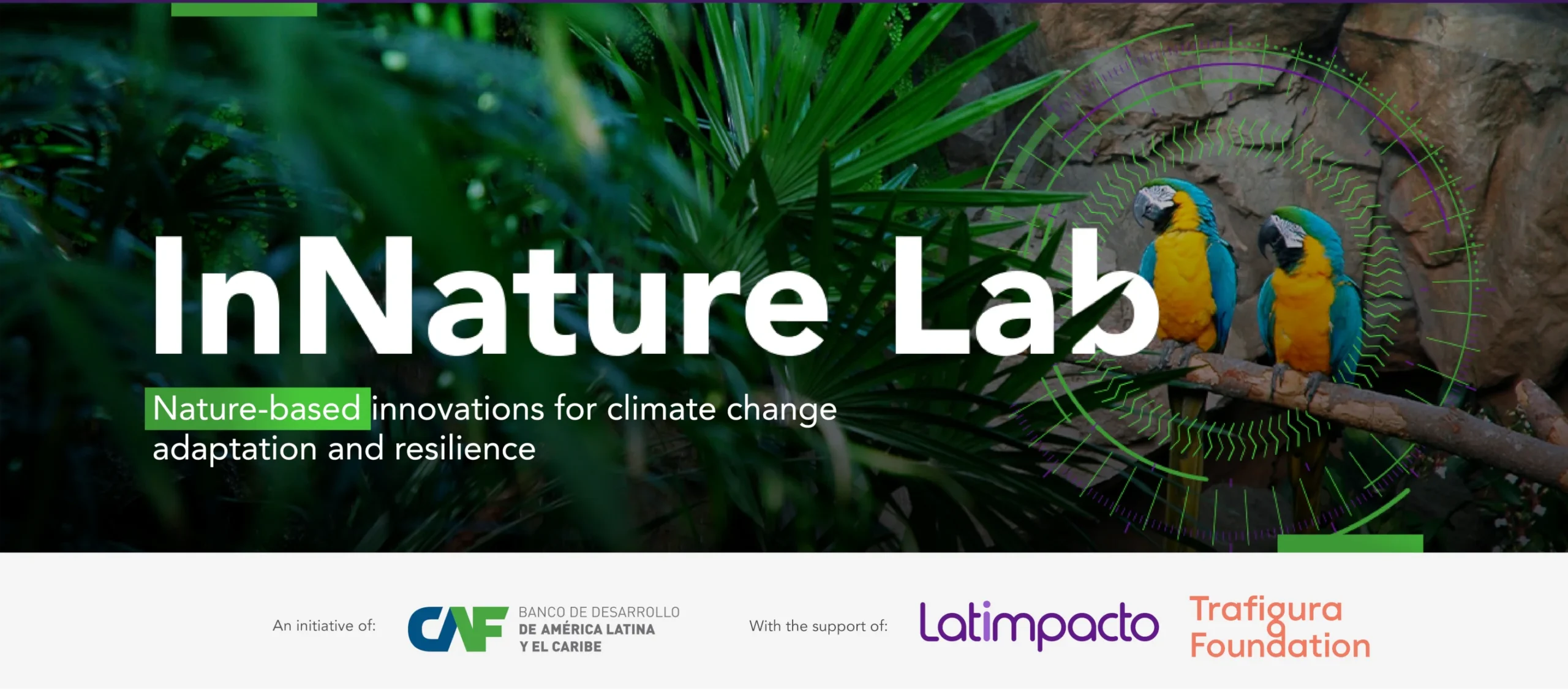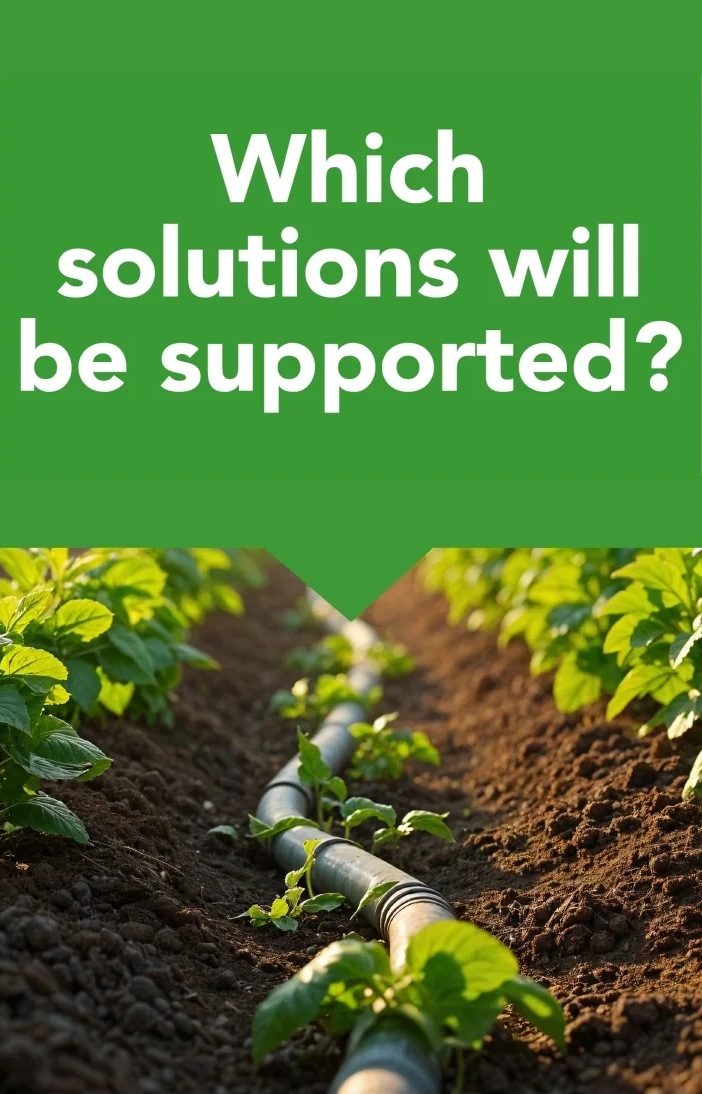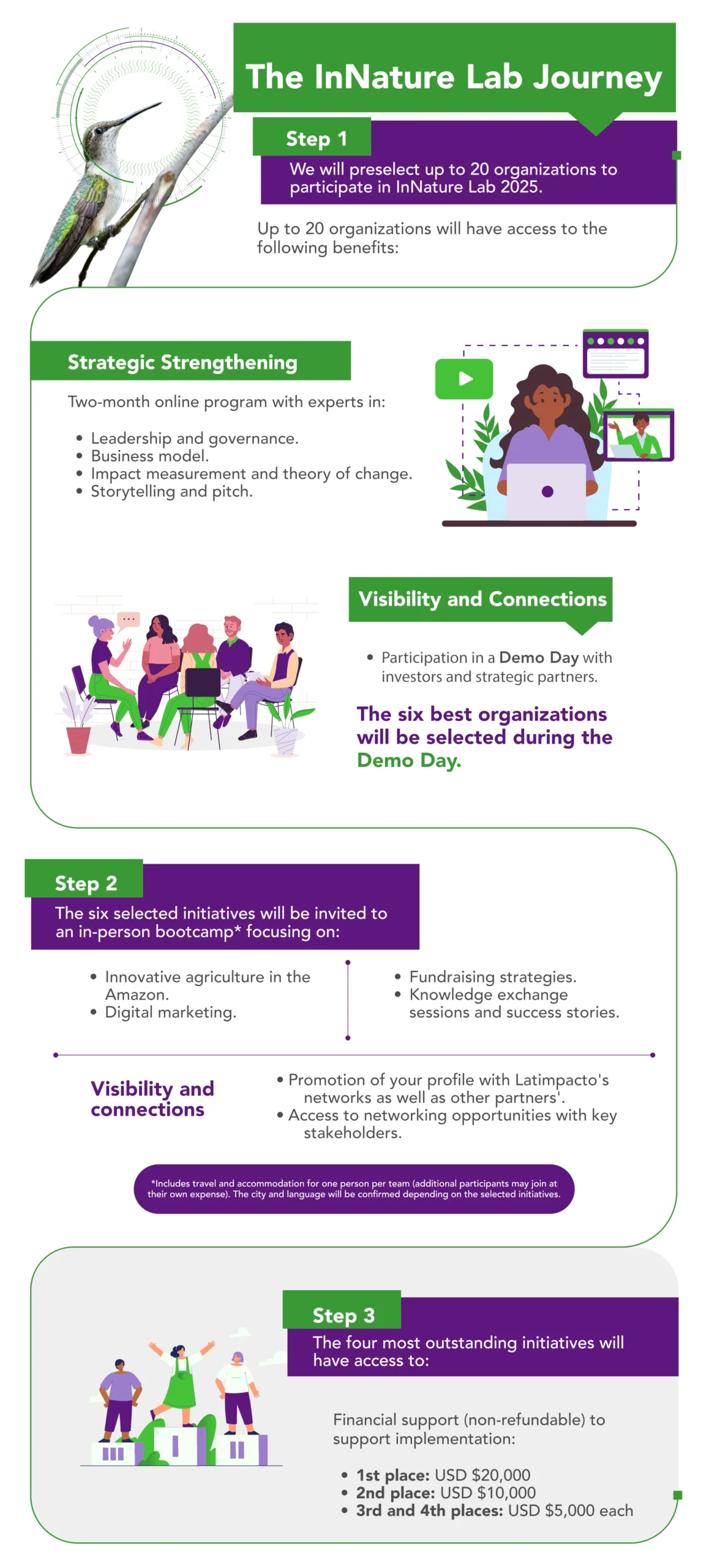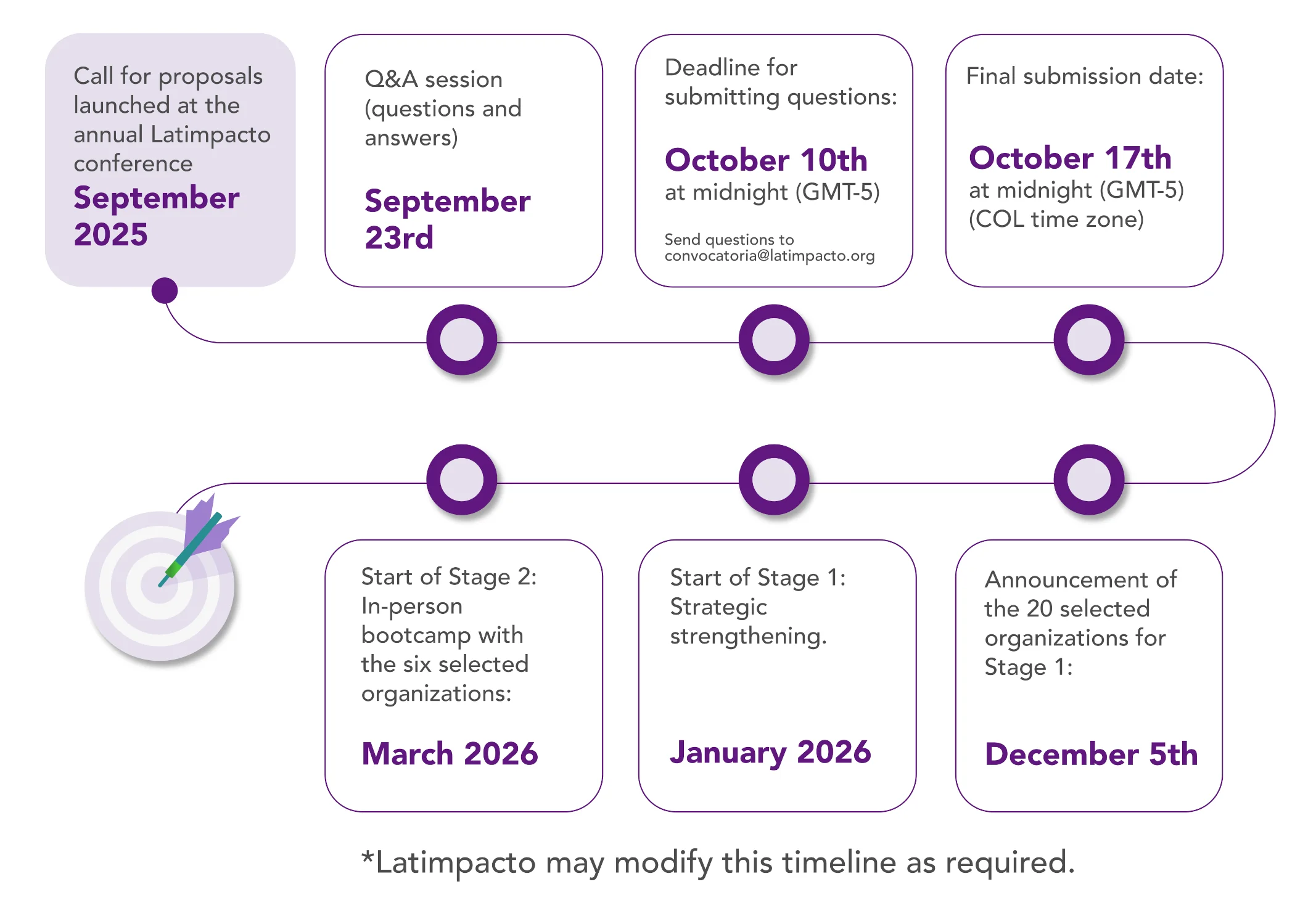

InNature Lab is a regional initiative that seeks to close the climate change adaptation gap from nature. The laboratory will accompany innovative solutions that strengthen the resilience of social-ecological systems in the Amazon and related territories and the communities that depend directly on them.
It is a laboratory for concrete action that responds to global and public policy priorities in the region by promoting the development of nature-based climate solutions.

Apply now for the 2025 edition!
In its first edition, the focus of the laboratory will be on resilient and regenerative agriculture, a priority pathway for climate change adaptation according to the United Nations Environment Programme (UNEP). This transition seeks to strengthen local productive systems from an approach based on nature, biodiversity and local knowledgepromoting solutions that regenerate ecosystems, increase sustainable productivity and build community resilience.

Initiatives that contribute to the stability of production systems in the face of climatic conditions:
- Reduced exposure to risks such as droughts, floods or fires.
- Increased adaptive capacity of agricultural and agroforestry systems.
- Protection and restoration of ecosystem services (water, soil, pollination, shade, etc.).
- Promotion of productive sovereignty and territorial resilience in the face of external shocks.
What should the proposals focus on?
We will especially value initiatives that work in areas such as:
- Regenerative production, to increase productivity by restoring soils, managing water efficiently and diversifying crops with native species.
- Inclusive access, by strengthening local networks, resilient value chains and fair markets for small producers.
- Sustainable use and exploitation, integrating agroecological practices, biodiverse diets, local food transformation and the revaluation of ancestral knowledge.
What are we looking for in proposals?
The selected proposals must:
- Be a nature-based innovation, with a focus on productive restoration, ecosystem services, biodiversity-based innovation or bioprospecting.
- Be led by formal organizations: startups, consortia, universities, innovation agencies, ecosystem support organizations, among others.
- Involve communities from the design stage and integrate ancestral knowledge.
- Demonstrate technical feasibility, financial sustainability and participatory governance.
- To have impact metrics, baseline and legal viability in its territory.
Do you want to know all the requirements application requirements?
Ready to apply your initiative?

Timeline

Do you have any doubts?



